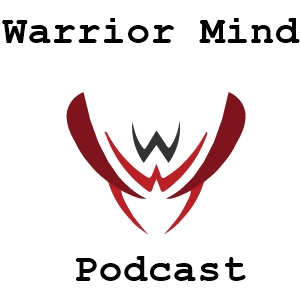Self-Regulation and Success: Warrior Mind Podcast #451


Over four years and going strong! With over 800,000 downloads from over 9 countries and 5 continents’…. this is the Warrior Mind Podcast.
In this episode of the Warrior Mind Podcast I’m going to discuss the importance of self-regulation and how it affects your personal success.
When it comes to success and happiness in life, emotional intelligence is key. Emotional intelligence is the ability to recognize one’s emotions and even those of others. It is the capability to discern different feelings and use emotional information to guide behavior and thinking.
According to a model introduced by Daniel Goleman, there are 5 main emotional intelligence constructs. They are self-awareness, self-regulation, social skill, empathy, and motivation.
In this post, we focus on self-regulation.
What Is Self-Regulation?
This refers to one’s ability to respond to demands of experience with various emotions in a manner that is flexible and socially tolerable. Also referred to as self-management, it is concerned with the control of one’s abilities and emotions.
Self-regulation can refer to processes responsible for evaluating and monitoring emotions. As a complex process, it involves the modulating and inhibiting of one’s behavior in a specific situation.
Each day, people get exposed to different stimuli and if one reacts extremely to the stimuli, it makes one unfit in a functional society. To prevent this, people need to practice self-regulation. What you need to know is that there are 5 constructs of self-regulation.
They are:
- Innovation
- Adaptability
- Trustworthiness
- Conscientiousness
- Self-control
Enjoy this podcast on the importance of self-regulation
Podcast: Play in new window | Download (14.2MB)
Subscribe: RSS
5 Constructs of Self-Regulation
1. Innovation
Innovation refers to the translation of an idea into a good or service for which customers are willing to pay. It also refers to the invention of ideas that create value. According to David Goleman, innovative people are those who are open to new approaches and ideas.
As such, they constantly search for new ideas and come up with ways to solve problems. For instance, an inventor wonders how he or she could send money across international borders in seconds without the usual delays.
Some of the ideas he may come up with include mobile money transfer, online payment system or cryptocurrency. Of these three ideas, cryptocurrency would be the best option. Why? Because it’s decentralized unlike mobile money transfer and online payment systems.
With a team of brilliant developers, one can be able to build an application that enables users to send money directly to family, and friends. Also, they can be able to make payments for services rendered or goods bought.
2. Adaptability
According to David Goleman, adaptability is an emotional intelligence competency present in different aspects of life and business. It is a sign of great leadership and one way of developing it is through mindfulness.
In an interview with Forbes, David Goleman said the following about leadership:
“The ability to manage oneself, and to know how to self-regulate is the basis for learning how to manage others. Great leaders are such because, first of all, they know how to drive themselves.”
According to Goleman, self-regulation is the basis of managing others in different ways. If you lack self-management, you will be poor at reading other people. If you are unable to fine-tune your actions, you will also be poor at controlling or managing other people.
3. Trustworthiness
Trustworthiness is one’s ability to maintain integrity. As one of the elements of self-regulation, it is a key component of emotional intelligence. Trustworthy people are reliable. If they promise to do something, then you know they will do it.
David Goleman identified several behaviors related to trustworthiness. These behaviors are consistent with those related to good emotional intelligence. For instance, people who are trustworthy act with integrity which gives them credibility. This means their values are always consistent with their actions.
People who are trustworthy build it through personal actions which are consistent with their values. They are always prepared to confront unethical actions and even take a stand if the action is unethical.
4. Conscientiousness
Conscientiousness and trustworthiness are two sides of the same coin. The reason for this is that they both behave well and per one’s code of ethics and personal values. What is conscientiousness? This refers to taking responsibility for your actions and making sure they match with your values.
According to David Goleman, people who are conscientiousness have the following traits:
- They keep their promises and meet their commitments
- They take responsibility for their actions and also achieve their realistic objectives at work and in life
- They are organized and careful about their work
The reason why conscientiousness can get things done is that they are very self-disciplined. As such, they can go about their duties without getting distracted.
5. Self-control
According to Daniel Goleman, self-control is the ability to keep your disruptive impulses and emotions in check. It also refers to maintaining one’s effectiveness under hostile or stressful conditions. Simply put, staying calm in difficult situations.
Self-control and self-management are both necessary traits for any leader. So, how do you master self-control? Practice meditation. When your thoughts are driven by anxiety or restlessness, you will think and act on those impulses. Meditation teaches you how to control your thoughts and finding balance. Basically, you learn how to suppress the fight and flight response.
The Bottom Line
The key to mastering self-management is learning how to control and manage your emotions. Before acting upon your impulses, it is wise to take time and think. This allows you to take into consideration the implications of your actions.
For a more in-depth discussion about this topic request your Introductory Consultation.
Subscribe to the Warrior Mind Podcast HERE.



